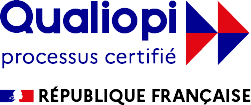Social Economy Business Manager
by DEC

REESS
Overview
Date of recruitment and registration
Now
Place of training
Montpellier, Perpignan, Béziers, Nîmes

Become a project or business development manager in the social, medico-social, integration, training, employment and socio-cultural sectors.
Learn to be a project creator in activities linked to the ecological transition, the circular economy and the collaborative economy.
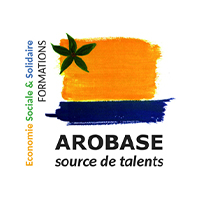
- Duration : 770 hours: 560 hours at the training center and 210 hours on internship
- Type of training: continuing education with internship
- Public: Professionals, Individuals
- Locations: Montpellier, Perpignan, Béziers, Nîmes
- Date: Contact us
- Contact : +33 7 75 76 64 12 – contact@dec-ecorh.com
Merci de remplir ce formulaire pour avoir accès à la documentation détaillée sur la formation
Prerequisites
- Hold a Bac+2 or a level 5 CEC (Eu) or III (Fr) professional qualification, or validationof professional experience.
- Proof of 3 years’ experience (except apprentices).
- Pass the recruitment tests
Cost
€8400
- Individuals and apprentices, please contact us.
- Training eligible for CPF.
- OPCO (ex-OPCA) and Pôle Emploi can finance our training courses.
Training program
770 hours: 560 hours at the training center and 210 hours on internship
Objectives
Three training objectives are defined:
- Manage human relations and teams
- Design and manage a social and solidarity-based activity or service project
- Develop strategies that take into account the socio-economic context of organizations.
Outlook
- Project or business development manager in the social, medico-social, integration, training, employment and socio-cultural sectors.
- Project creation in activities linked to the ecological transition, the circular economy and the collaborative economy.
1
Human relations and team management
Social and Solidarity Economy
– Specificities of the Social Solidarity Economy.
– New challenges: collaborative economy, circular economy, social innovations.
– Sectoral workshops: social and medico-social action, social innovations.
Being an executive in the SSE
– Missions, functions and roles of the executive.
– Management styles.
– Being a proximity manager.
Cooperation and team cohesion
– Individual and collective skills.
– Giving and receiving as a team.
From assessment to career plan
– Boosting your professional project.
– Managerial skills and attitudes.
Interpersonal relations, communication
– Active listening, non-violent communication.
– Managing difficult situations.
Leading and regulating groups
– Group values and cultures.
– Conditions for collective effectiveness.
Team management
– Components of team management.
– Effectiveness and motivation.
– Change management.
Employment law
– Types of employment contracts.
– Breach of contract, disciplinary sanctions.
– Employee representation.
Human resources management
– Human resources issues in the SSE sector.
– Recruitment, training, remuneration, assessment.
– Prevention of psychosocial risks.
Assessment of managerial skills
2
Leading and coordinating social and solidarity projects
Public policy analysis
– Competencies of public institutions.
– General framework of public policies.
– Evaluation, different measures of social impact.
Social needs analysis (SNA)
– SNA as part of a local social project.
– Information gathering and assessment (sources, analysis and assessment methods).
Research methodology
– Drawing up a research plan.
– Researching and processing information.
– Observation methods, reflective analysis.
Project management and action plan
– Methodology for a social utility project.
– Structuring the service offering.
– Relevance and assessment of the business model.
Legal status for entrepreneurs
– 2014 law and social entrepreneurship.
– Challenges of legal forms in the SSE sector.
Professional effectiveness
– Professional writing.
– Oral communication.
Economic and financial analysis of a project
– Fundamentals of economic analysis.
– Financial study and business plan.
Legal and tax obligations
– Taxation of SSE companies.
– Administrative and accounting obligations.
Solidarity financing and sponsorship
– From sponsorship to corporate partnership.
– Financing and fund-raising issues.
– Solidarity finance.
Evaluation : socio-economic analysis and project management.
3
Strategic management
Accounting and financial analysis
– Balance sheet and income statement.
– Cost analysis as a decision-making tool.
– Budget and cash flow plan.
Performance management
– Information system organization.
– Operational dashboards.
– Performance indicators and measurements.
Management and evaluation of ESSMS
– Principles of budgetary procedure, contractualization (CPOM).
– Internal and external evaluation, quality.
Organization management
– Different forms of organization.
– Governance, power and culture.
– Work coordination and integration.
– Change management.
Corporate strategy
– Strategic analysis methodology and tools.
– Strategic positioning and deployment.
– Scaling up SSE organizations.
Professional effectiveness
– Dissertation methodology.
– Oral communication.
Management simulation (strategy game)
– Decision-making in situations of uncertainty
– Steering and strategic management of a company
– Performance evaluation.
How to finance your training?
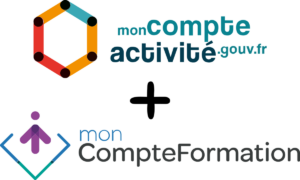
Training costs
Training courses can be expensive, and trainees are sometimes required to pay the costs themselves. Depending on the course you are taking and your status, you may be eligible for financial assistance. Ask your "France Travail" advisor for details.
As part of the "Conseil en évolution professionnelle" program, your advisor will help you identify and mobilize the financing available for your project.
Under certain conditions, you can also use your personal training account. To find out more, visit the official website moncompteformation.gouv.fr
Remuneration during training
Case n°1: you are receiving the Allocation d'Aide au Retour à l'Emploi (ARE) from "France Travail" or your former public-sector employer:
If the training course you wish to follow is validated by a Pôle emploi advisor and is in line with your Personalized Project for Access to Employment, you can receive the Allocation d'Aide au Retour à l'Emploi Formation (AREF) up to the limit of your compensation entitlement.
If the training continues beyond the duration of your entitlement to the Allocation d'Aide au Retour à l'Emploi, you can complete your training as an unpaid vocational training trainee, or, if you meet the eligibility criteria, receive the Remuneration de Fin de Formation (RFF) or,
failing that, the Allocation Spécifique de Solidarité.
For more information: ask your "France Travail" advisor.
Case n°2: if you are not receiving the Allocation d'Aide au Retour à l'Emploi (ARE), you can receive :
"France Travail" training remuneration (RFPE) if the training action is approved by "France Travail" (ask your advisor for details) and if it is part of your personalized employment access project.
If you are on ASS (Allocation Spécifique Solidarité) on the eve of your training start date: as ASS is subsidiary to any other training compensation or remuneration, it cannot be combined with the RFPE you will receive during training.
The ASS will therefore be suspended while you receive the RFPE. Your "France Travail" advisor will analyze your file to check whether you meet the conditions for entitlement.
The ASS will therefore be suspended while you receive the RFPE. The "France Travail" advisor will analyze your file to check whether you meet the conditions for entitlement.
Public remuneration for training courses approved by the State or the Regional Council: the training organization is responsible for putting together your remuneration file.
Please note: each Regional Council may set up special arrangements for remuneration and/or financial aid.
EMPLOYEE ON PERMANENT OR FIXED-TERM CONTRACT
The professional transition project replaces the former individual training leave (CIF) as of January 1, 2019.
The professional transition project is a special modality for mobilizing the personal training account, enabling employees wishing to change jobs or professions to finance certifying training linked to their project.
TEMPORARY EMPLOYEE
Find out more from the Fonds d'Assurance Formation du Travail Temporaire (FAF.TT).
This fund helps temporary employment agencies and their employees to improve their performance, and thus their ability to meet market needs, through training programs.
Self-employed workers (craftsmen, shopkeepers, self-employed professionals, self-employed managers, etc.) can also benefit from financing for their training courses.
They should apply to :
- AGEFICE for company directors in the trade, industry and services sectors
- FIF-PL for self-employed professionals
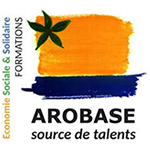
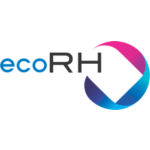
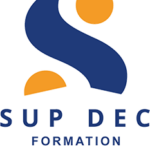
WHAT PEOPLE SAY ABOUT US
I did my internship at Nouas Formation Sup Dec frankly nothing to say the staff was very welcoming and professional which makes us want to work.
I recommend
Having trained at Nouas Formation Sup Dec, I highly recommend!
I did my internship at the Nouas Sup Dec association, the welcome was very warm, the staff welcoming and above all very professional. I recommend it.
Excellent reception! Team at the top. I recommend it.

Bachelor Degree
Digital Marketing
Become experts in creating, implementing and managing digital marketing strategies in both B2B and B2C environments.
Mastère
in Management and Business Strategy
Advise and support the management of a company in the elaboration of development, transformation, adaptation or change management strategies.
Language training
The objectives :
· To define a professional project, acquire basic knowledge and consolidate a professional orientation.
· To be part of a dynamic of qualification and professional integration.
· To develop the necessary skills to enter the business world
